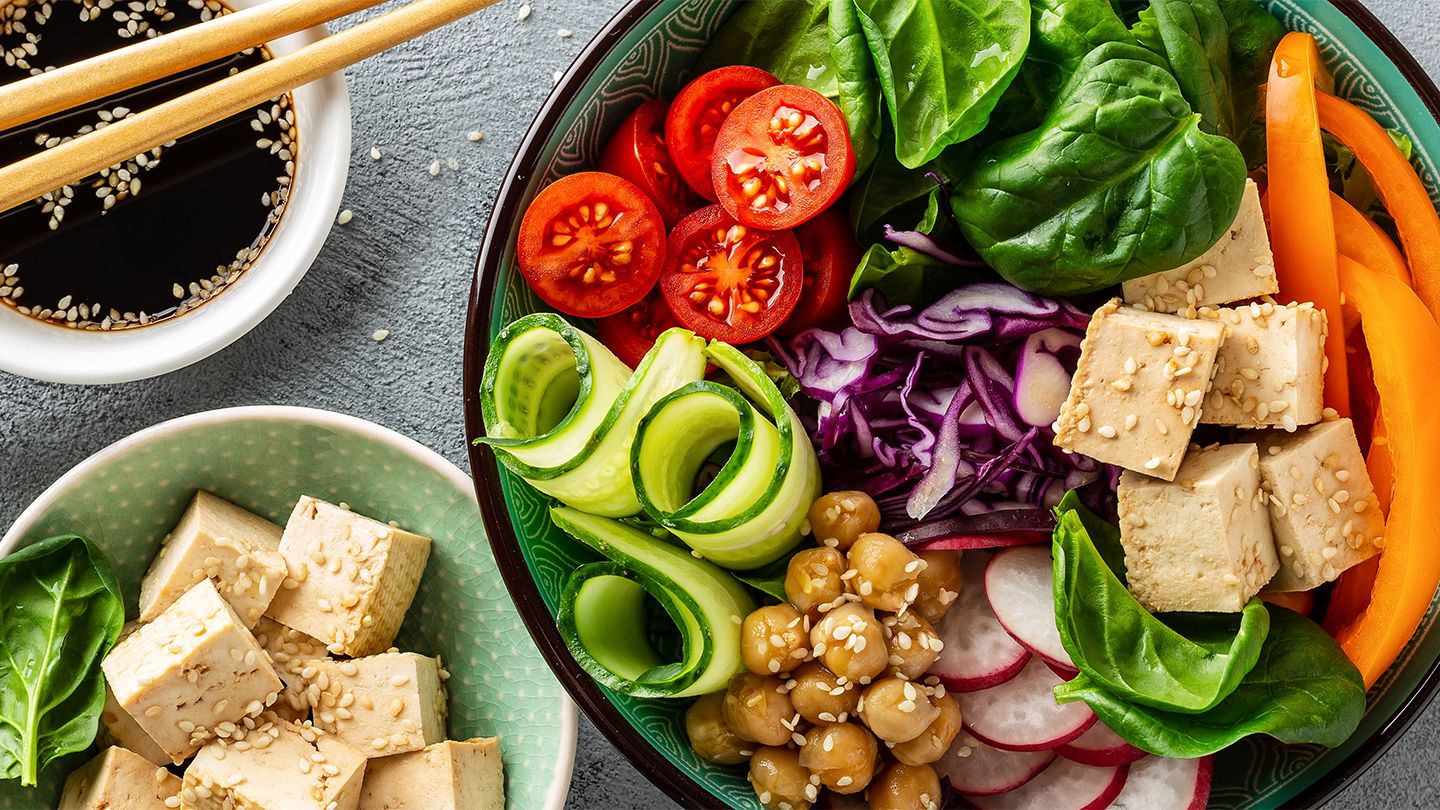In recent years, veganism has gained popularity as more people become aware of the impact their food choices have on the environment, animals, and their health. With 2023 well underway, it’s becoming clear that this trend is showing no signs of slowing down. In fact, veganism is poised to become even more accessible and mainstream than ever before.
Going vegan is not only a dietary choice, but a movement towards a more ethical and sustainable way of living. In the world in recent years, the popularity of veganism has skyrocketed, with many people choosing to eliminate animal products from their diets and their daily lives.
To go vegan in 2023 is easier than ever before, as more companies are now offering plant-based recipes and alternatives to animal-derived ingredients. From meat alternatives to dairy-free milk options, there has never been a better time to switch to a vegan diet. With the rise of more vegan meal options, more and more people are becoming aware of the negative impact that animal agriculture has on the environment, animal welfare, and health.
But with so much information out there, it can be overwhelming to know how to go vegan in 2023. That’s why we’ve put together this guide to help you make the transition to a plant-based lifestyle. Whether you’re looking to improve your health, reduce your environmental impact, or simply want a change of lifestyle, going vegan in 2023 is a great way to achieve those goals. So, let’s dive in and explore the best possible way you can make the switch to a vegan lifestyle in 2023.
The difference between veganism and vegetarianism
The vegan world has a lot of factors to it. Not a lot of people know that there are different types of plant-based diets. It’s easy for people to think that as long as you don’t consume meat anymore, you’re already on a vegan diet. One of the most common misconceptions is confusing veganism with vegetarianism.
Veganism is a lifestyle that seeks to exclude the use of animal products for food, clothing, or any other purpose. It’s a philosophy that aims to reduce animal suffering and exploitation while promoting a healthier and more sustainable way of living. In a vegan diet, all animal-derived products such as meat, dairy, eggs, and honey are avoided, and instead, plant-based foods such as fruits, vegetables,, grains, and legumes are emphasized.
On the other hand, vegetarianism is a dietary choice that excludes meat, poultry, and fish from meals, but allows for the consumption of other meat such as dairy and eggs. There are different types of vegetarianism, including lacto-ovo vegetarianism, which permits the consumption of dairy and eggs, and lacto-vegetarianism, which allows for the consumption of dairy but not eggs. Some people may also follow pescetarianism, which allows for the consumption of fish but not meat.
While both veganism and vegetarianism promote the consumption of plant-based foods, veganism takes the ethical stance that it’s wrong to exploit or harm animals for any reason, including for food or clothing. This means that vegans avoid eating all animal-derived products, including those that are obtained without causing harm to animals, such as dairy and eggs. Vegetarians, on the other hand, may still consume meat, such as dairy and eggs, that are obtained without causing direct harm to animals.
Overall, the main difference between veganism and vegetarianism is the extent to which animal products are avoided. Vegans exclude all animal-derived products, while vegetarians exclude meat, poultry, and fish but may still consume dairy, eggs, and other animal-derived food products.
Why you should go for a vegan diet
There are many reasons why someone might choose to adopt a vegan lifestyle. Here are some of the most compelling reasons to consider going vegan:
- Animal welfareMany people choose to go vegan because they believe that it’s wrong to use and exploit animals for food or any other purpose. By avoiding all animal products, vegans are taking a stand against the cruel and often inhumane treatment of animals in the food and farming industries.
- Health benefitsVegan meals have been linked to a wide range of health benefits, including lower rates of heart disease, diabetes, and certain types of cancer. Plant-based diets are typically high in fiber, vitamins, and minerals while being low in saturated fats and cholesterol. This can lead to improved overall health and well-being. While vegan diets don’t fully guarantee you’ll lose weight, it’s definitely a step in the right direction towards a healthier lifestyle.
- Environmental impactAnimal agriculture is a major contributor to greenhouse gas emissions, deforestation, and water pollution. By avoiding eating meat, vegans are reducing their environmental footprint and helping to promote a more sustainable way of living.
- Food availabilityWith the increasing availability of plant-based products, it’s becoming easier than ever to adopt a vegan diet. Many grocery stores and restaurants now offer a wide range of vegan options, making it possible to enjoy delicious and nutritious meals without the need to eat meat. Going vegan requires you to put in the extra effort to refuse to eat animals and processed food. There are multiple natural alternatives to gain the necessary daily nutrients.
- Ethical considerationsSome people choose to go vegan for ethical reasons beyond animal welfare. For example, they may object to the use of antibiotics in animal agriculture, or they may believe that it’s wrong to use land and resources to raise animals for food when so many people around the world are hungry.
Why a vegan lifestyle is now more accessible in 2023
The best advice anyone can give you when you’re deciding on shifting to eat a plant-based diet is to be informed. Today’s digital age makes everything easier than ever before. Your vegan journey begins with asking the proper questions. Going vegan has become more accessible in recent years due to several factors, including:
- Increased awarenessThere is growing awareness and concern about the impact of animal agriculture on animal welfare, human health, and environmental sustainability. This has led to a rise in the number of people interested in eating vegan and an increase in the availability of plant-based products.
- Availability of vegan productsWith the rise in demand for vegan products, more companies are now producing and offering plant-based options. Many restaurants and grocery stores now offer a wide range of vegan options, including meat and dairy alternatives, making it easier than ever to find vegan-friendly products.
- Technology and innovationAdvances in technology and innovation have made it possible to create meat and dairy alternatives that closely mimic the taste and texture of animal-based products. For example, plant-based burgers and sausages have become increasingly popular, providing a more realistic alternative to meat.
- Social mediaSocial media has played a significant role in promoting vegan food and raising awareness about the benefits of a plant-based diet. Platforms such as Instagram and YouTube have made it easier for vegans to connect, share recipes and information, and promote their lifestyles. As much as we all have a lot to say about the state of modern social media, online influencers do prove to be a great resource for vegan recipes and practices.
- Improved taste and quality of vegan productsIn the past, some vegan products in the Philippines were criticized for their taste and texture. However, with the rise in demand for plant-based products, many local businesses have started to produce high-quality vegan products that taste and feel similar to their animal-based counterparts. Some would even go as far as to say vegan food can taste better than their actual animal-based counterparts.
- More affordable optionsIn the past, vegan products were often more expensive than their animal-based counterparts. However, as more companies are entering the plant-based market, prices are becoming more competitive, making it easier for people to afford vegan products.
Common misconceptions about a vegan diet
There are several common misconceptions about eating vegan that can make it difficult for people to understand vegan recipes and embrace this lifestyle. Here are some of the most prevalent misconceptions:
- It’s expensiveWhile it is true that some vegan products can be expensive, such as plant-based meat substitutes or specialty vegan products, many vegan staples are actually quite affordable, such as beans, rice, vegetables, and fruit. In fact, eating vegan can often be more affordable than a diet that includes animal and dairy products.
- It’s nutritionally inadequateMany people believe that it is difficult to get enough protein, iron, and other essential nutrients on vegan meals. However, with proper planning and a balanced approach, a vegan meal can provide all the nutrients the body needs. In fact, studies have shown that vegans tend to have lower rates of heart disease, obesity, and certain types of cancer.
- It’s all or nothingSome people believe that being vegan means you have to be 100% perfect all the time and that any slip-up means you are no longer vegan. However, going vegan is a journey, and it is okay to make mistakes or have occasional slip-ups. The goal is to do the best you can and make choices that align with your values.
- It’s difficult and restrictiveMany people believe that being vegan means giving up all their favorite foods and being limited to a narrow range of options. However, with the wide variety of plant-based options available today, it is easier than ever to find delicious vegan alternatives to traditional animal and dairy products. Additionally, many vegan recipes are easy to make and require only a few ingredients.
Tips when transitioning to vegan food
If you are interested in transitioning to vegan food, here are some tips to help you get started:
- Educate yourselfBefore making any major dietary changes, it is important to educate yourself about the plant-based diet, including what nutrients you need to pay attention to and what foods you can and cannot eat. Look for reliable sources of information, such as books, documentaries, and reputable websites.
- Start slowlyGoing vegan overnight can be overwhelming, so it is often helpful to transition gradually. Start by incorporating more plant-based foods into your meals, and gradually reduce your consumption of animal products over time.
- Experiment with new foodsOne of the best things about going vegan is the opportunity to try new foods and cuisines. Experiment with different plant-based foods and recipes to find what you enjoy.
- Find vegan substitutes for your favorite foodsMany traditional meat and dairy products now have vegan alternatives, such as plant-based milk, cheese, and meat substitutes. Look for these substitutes in your local grocery store or try making your own.
- Plan your mealsPlanning your meals ahead of time can help you ensure that you are getting all the nutrients you need and prevent you from resorting to unhealthy convenience foods. Look for vegan recipes online or invest in a vegan cookbook for inspiration.
- Take supplements if necessaryWhile a well-planned vegan diet can provide all the nutrients the body needs, some people may need to take supplements, such as vitamin B12 and vitamin D. Consult with a healthcare professional if you are unsure about what supplements you need.
- Join a vegan communityJoining a vegan community can provide you with support, advice, and inspiration as you transition to a vegan diet. Switching to a completely different diet style can be difficult and connecting with a community is one of the best ways you can feel supported. It is in these communities where you can gain new vegan recipe ideas, discover vegan restaurants, and make new connections with other vegans who are on the same journey as you are.
In today’s world, people are increasingly conscious of their health and the impact of their lifestyle choices on the environment. Asterra is a real estate development company that recognizes this trend and is committed to providing healthy living spaces that align with these values.
Asterra’s commitment to healthy living spaces goes beyond just physical health. The company recognizes the importance of community and social connections in promoting overall well-being. By fostering a sense of community and providing opportunities for residents to connect, Asterra aims to create a supportive environment that encourages and inspires healthy living. Contact us today and find your dream space for a happier and healthier lifestyle.
Written by Renzo Guevara





